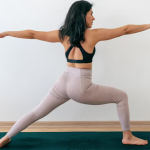The Problem
Being a parent is exhausting – no two ways about it.
If you’re the parent of under twos it is physically relentless. You are weightlifting little humans all day long, never quite getting enough sleep, and trying to fit in everything that you did before in order to prove that ‘being a parent’ hasn’t changed you. This phase won’t last long, as self-preservation kicks in and you stop going to all but the easiest social occasions.
If you’re the parent of under tens it is organisationally exhausting. You find that you are juggling the social/school and work diaries of everyone in the family, while attending sports days, class assemblies, open days, focus meetings, class holiday meetings, ballet lessons, football matches and so on. Making time to fit anything into your own social calendar means planning it at least a year in advance.
If you’re the parent of ten to 18+ year olds, it’s emotionally exhausting, plus demoralising. You put in all that hard parenting and THIS is what you end up with? Occasionally they say ‘please’ or offer to help, at which point you faint with joy, but mainly it’s one long whinge, when they occasionally look up from whatever device they happen to be on at the time.
How Yoga Can Help
Basically, once you become a parent, your children come first. Work, home and everything else in between is a juggling act to accommodate the lives of those precious beings you have created.
Of course, joking aside, being a parent is ultimately the most rewarding job on the planet. But it IS a job, and one that has no clocking on or (more importantly) clocking off times. You’re on duty 24 hours a day.
So how can yoga help?
Yoga is a way of putting self care back on your To Do list. As the father of Ashtanga yoga, Pattabhi Jois says,
“if we practice it [yoga] without fail, we will then attain physical, mental and spiritual happiness, and our minds will flood towards the Self.”
Being a parent depletes our physical, emotional and mental reserves and if we don’t address this outpouring of energy with a countering way of rejuvenating ourselves, there’s a danger that we will succumb to what I have termed, ‘Parental Fatigue Syndrome.’ The first step is having a break, which will give you a short term lift, but the benefits wear off very quickly, and there needs to be a long term strategy to avoid getting to the burnout stage. Yoga provides the answer.
Yoga is a way of turning your attention back onto your physical self.
The body that has given birth, that has breastfed in the middle of the night, that has borne, carried and held those children. The body that bears scars, aches and lines. We have become a stranger to our bodies as the little limpets that started life inside of them have taken ownership of them now they’re outside.
But on the mat our body is back in the limelight. Even the most basic standing pose, Tadasana, highlights our lopsidedness, our tension and our lack of strength. By coming back to our bodies and re-aligning them, bone by bone, muscle by muscle, we re-align ourselves.
Yoga is a way of replenishing our emotional selves.
Our emotional selves give and give and give (then have a rant) and then give again. Every parent recognises the sense of despair when faced with the zillionth time you’ve asked your child to pick up their dirty socks. Your mind literally screams with the dullness. Then the next second you’re crying quietly with joy as you watch their little sleeping faces.
Yoga is a way of re-balancing and re-charging our emotional selves. When we use our energy to focus on the precise movements of the body, bring our attention back to the breath, we can inhale energy, and exhale negativity.
Yoga allows us to be mentally healthy.
As B.K.S. Iyengar points out, ‘Yoga offers us very useful ways to fix the mental problems that cause most of us so much suffering.’ We are the controllers of our minds, but most of the time it really doesn’t feel that way. We feel that our mind and the web of chatter it spins is the reality. Especially in relation to our children. When we’re not looking after them, we’re thinking about them; when they’re not annoying us, we’re worrying about them.
According to Patanjali, the ancient godfather of yoga,
“Yoga is the cessation of movements in the consciousness.”
In a way we need to treat our mind as yet another difficult child. The child in our heads is noisy, and demanding. We’re used to giving in to its whims and desires so it’s become used to getting its own way. We need to compassionately withdraw our attention from the mind – there will still be noise and opinion and chatter, but we’re just not giving in to it. Eventually the mind-child will learn that being still is a better way to get our full attention.
The Answer
Being a parent is a privilege. I learn from my children every day. I learn the infinity of patience required and the limitlessness of love.
Yoga is my balance, my key to the door of myself. Once I’ve accessed that, I can turn again to my children, renewed in myself.













